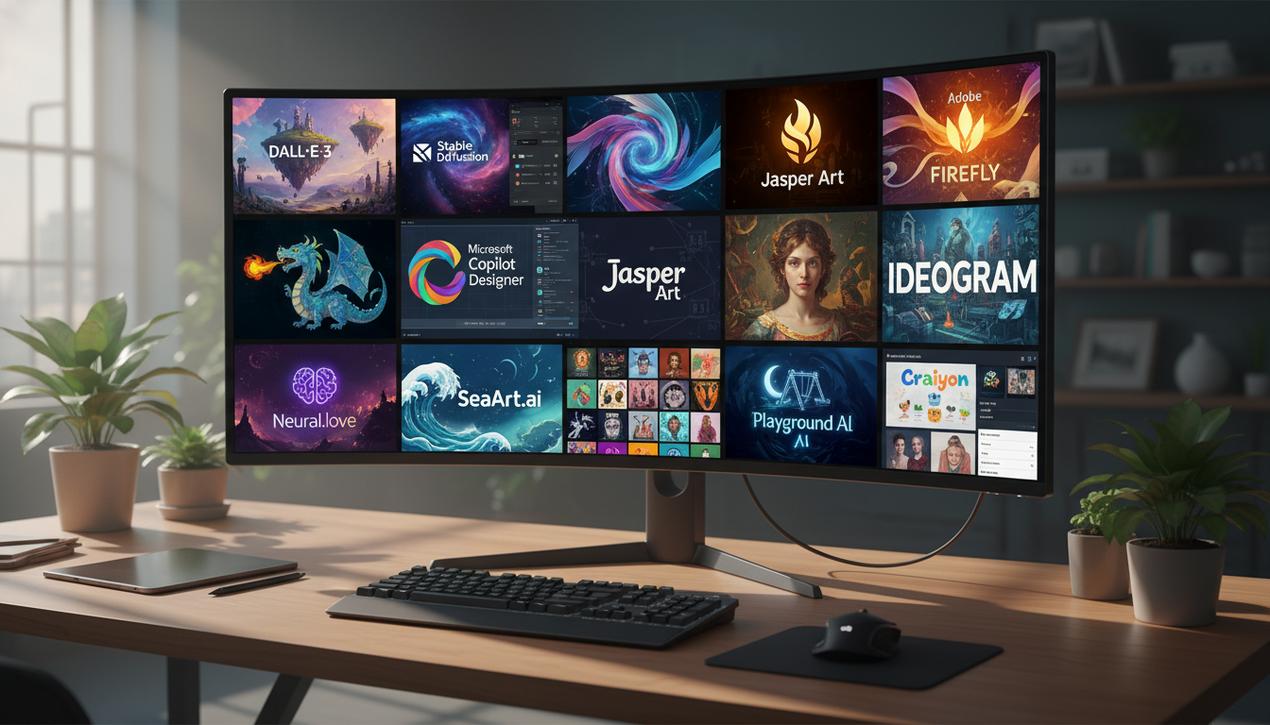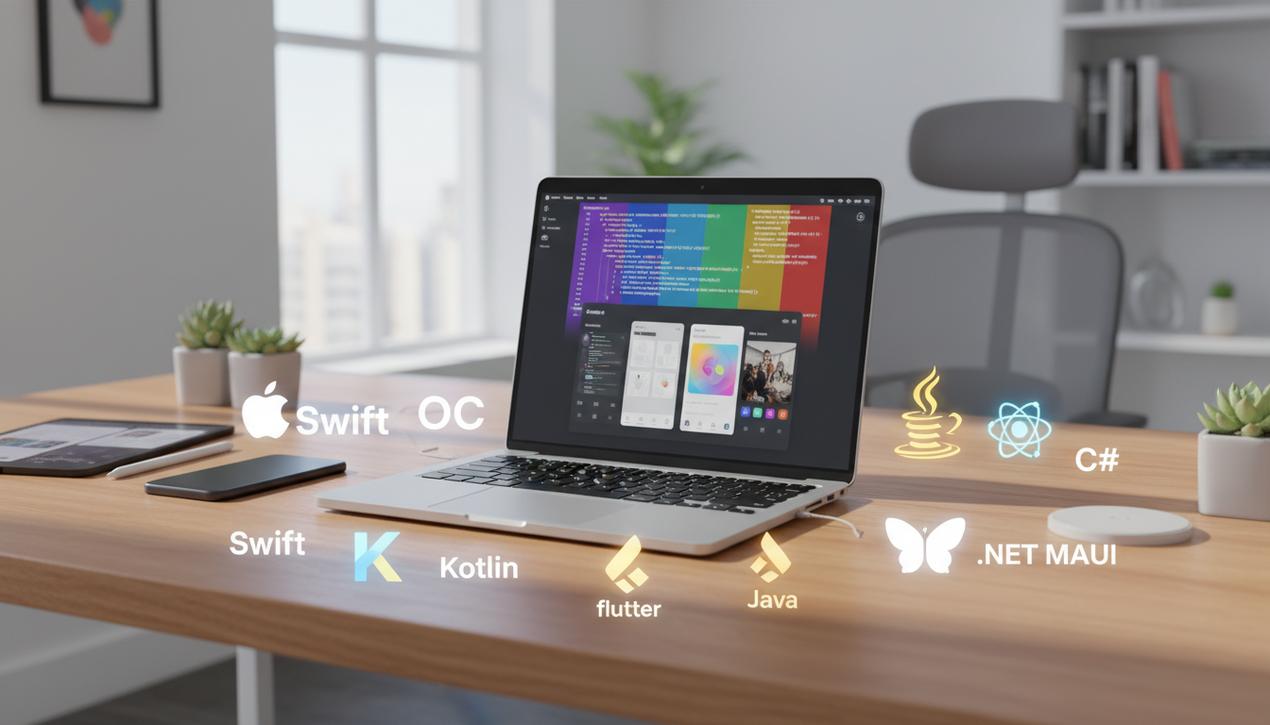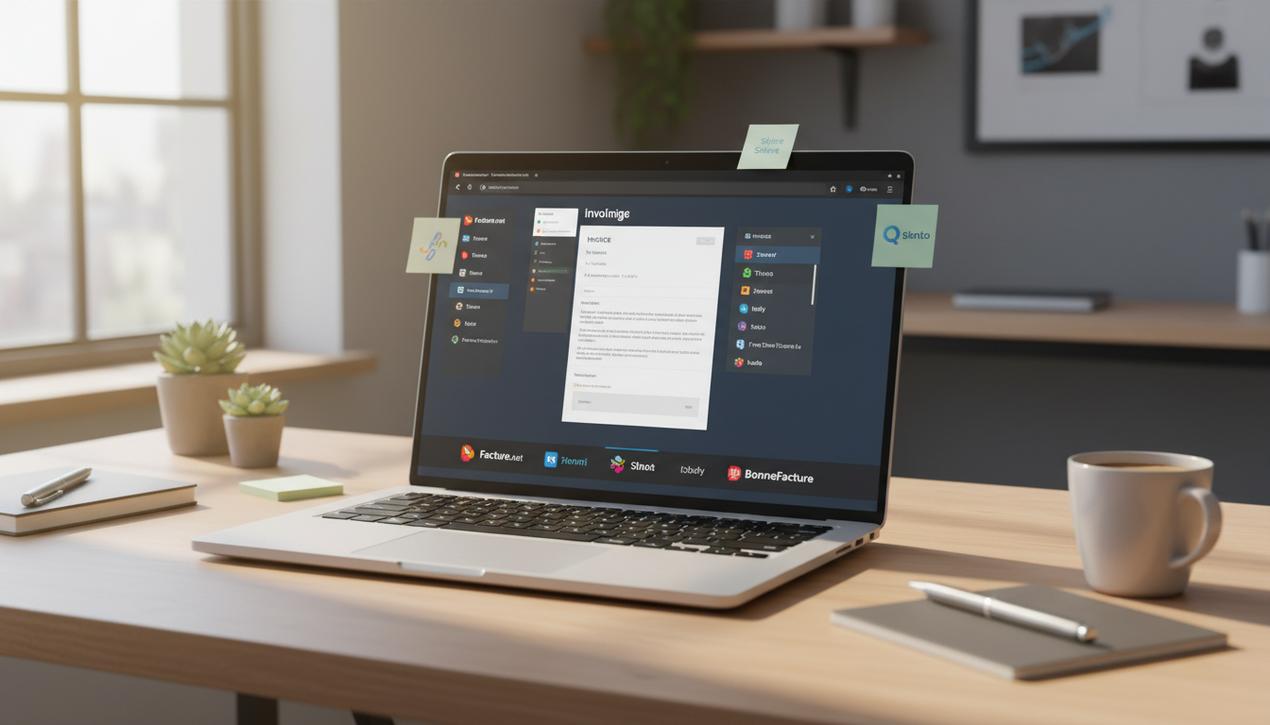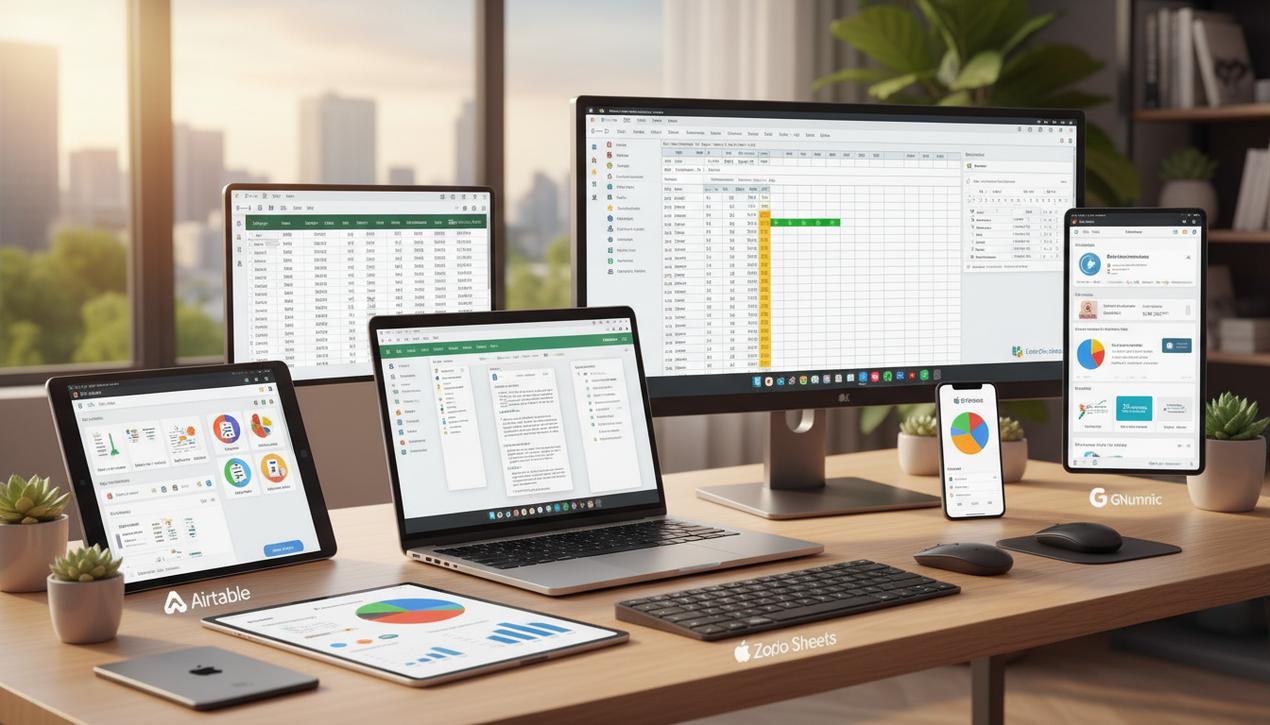Top 16 Android App Creation Software for 2025
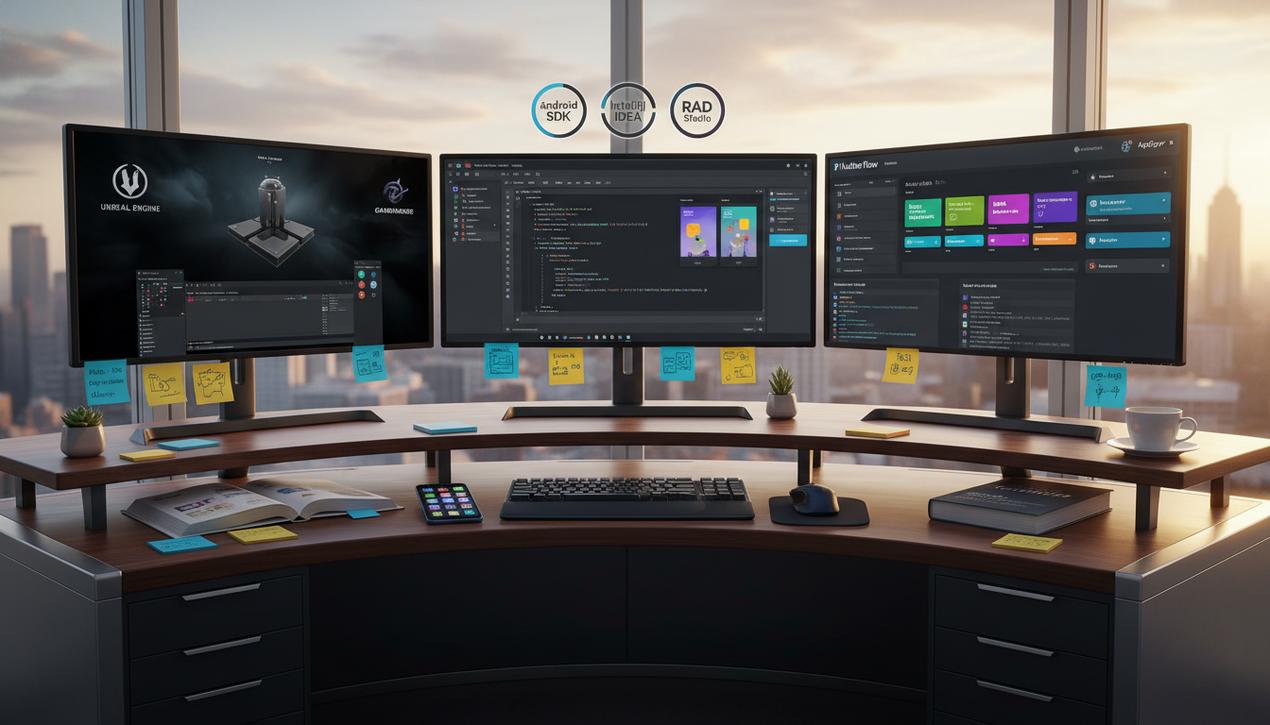

With an active user base exceeding 3 billion, Android overwhelmingly dominates the global mobile operating system market. In 2025, developing an application for this platform isn’t just about reaching a massive audience; it’s about tapping into a vibrant and rapidly evolving tech ecosystem. Mobile app revenue is projected to surpass $600 billion, a figure driven by relentless innovation. However, turning a great idea into a successful application hinges on selecting the right tools. A superior Android app creation software must provide a robust architecture, extensive customization options, and a streamlined product lifecycle management. Performance, security, and scalability are non-negotiable. Faced with a plethora of options, from traditional IDEs to emerging no-code platforms, it’s easy to get lost. This comprehensive guide breaks down the 16 best software tools to develop, test, and launch your Android application, whether you’re a seasoned developer or an entrepreneur with no coding experience.
Why Android Development Remains a Strategic Choice in 2025
Despite a mature app ecosystem, Android continues to offer unique opportunities, as shown by any SWOT analysis of the market, thanks to its open nature and unparalleled reach. The trends of 2025 confirm its strategic importance for developers and businesses alike.
An Open Ecosystem and Maximum Flexibility
The open-source nature of Android is its greatest strength. It provides near-total freedom to modify, optimize, and recompile code, allowing for perfect adaptation to an immense variety of devices—from entry-level smartphones to foldable tablets and smart TVs. This flexibility is crucial in a market defined by constant hardware innovation.
A Low Barrier to Entry and a Fast ROI
Launching an app on the Google Play Store is significantly more affordable than on Apple’s App Store. The developer license is a one-time fee of $25, compared to an annual $99 fee for iOS. Furthermore, the primary development tools, like Android Studio, are completely free. This low initial investment allows you to focus resources on quality development, design, and marketing, ensuring a better return on investment.
Access to a Diverse, Global Market
Android commands over 70% of the global market share. This dominance translates into access to a colossal and diverse user base. From emerging markets in Asia and Africa to mature ones in Europe and North America, an Android app has a truly global reach, maximizing its potential for downloads and monetization.
Native Development Software (IDEs)
For those seeking maximum performance and complete access to native device features, native development remains the gold standard. These Integrated Development Environments (IDEs) are the preferred tools of professional developers.
- 1. Android Studio: The undisputed champion. As Google’s official IDE for Android development, it includes everything you need: an intelligent code editor (for Kotlin and Java), a debugger, performance analysis tools, and an extremely powerful emulator. In 2025, it integrates AI assistants like Gemini to accelerate coding and bug resolution.
- 2. Android SDK: While an essential component of Android Studio, it’s worth understanding on its own. The Software Development Kit (SDK) contains all the libraries, APIs, and tools required to interact with the Android system. It allows you to target specific Android versions and access device hardware features.
- 3. IntelliJ IDEA: Developed by JetBrains, this is the foundation upon which Android Studio is built. Its paid Ultimate version offers advanced tools for polyglot development (Java, Kotlin, Scala) and deep integrations for enterprise frameworks, making it a premium choice for developers in complex ecosystems.
- 4. RAD Studio: This IDE stands out with its single-codebase, multi-platform approach. It enables you to compile applications for Android, iOS, Windows, and macOS from one project. It’s a powerful solution for businesses looking to optimize development resources across multiple platforms.
Engines for Building Android Games
Mobile gaming is the most lucrative segment of the app market. These specialized engines provide advanced graphics, physics, and asset management tools to create immersive experiences.
- 5. Unity: The undisputed leader in mobile game development. Unity is renowned for its flexibility, enabling the creation of everything from simple 2D games to complex 3D experiences. Its massive Asset Store offers ready-to-use models, sounds, and plugins. Its vast community and extensive documentation make it a top choice for beginners and experts alike.
- 6. Unreal Engine: The go-to choice for photorealistic 3D games. Developed by Epic Games (creator of Fortnite), Unreal Engine 5 pushes the boundaries of mobile graphics. Its visual scripting system, Blueprint, allows for the creation of complex game logic without writing code, making it accessible to game designers.
- 7. GameMaker: Perfect for getting started in 2D game development. GameMaker focuses on simplicity with a drag-and-drop interface and an easy-to-learn scripting language. It’s the ideal tool for indie developers and rapid prototyping projects that don’t require the power of a full 3D engine.
The Rise of No-Code and Low-Code Platforms
The strongest trend of 2025 is the democratization of app creation. These platforms empower users to build functional applications with little to no coding knowledge.
- 8. Adalo: A very popular no-code platform that lets you build native mobile apps for Android and iOS through a visual interface. You assemble pre-built components (lists, forms, buttons) and define the logic with simple actions. It’s ideal for building a Minimum Viable Product (MVP) or apps like marketplaces and social networks.
- 9. FlutterFlow: A low-code builder based on Google’s Flutter framework. It offers the best of both worlds: a fast, visual development interface often helped by tools for rapid web design, and the ability to export clean, high-performance source code. It is a perfect tool for startups and SMBs aiming to build a high-quality app quickly.
- 10. AppGyver: Acquired by SAP, AppGyver is a professional-grade no-code platform that is completely free. It allows you to create complex applications with advanced logic, API integrations, and access to native phone features. While it has a steeper learning curve, its power is unmatched in the free no-code space.
Essential Testing and Debugging Tools
An application is never finished after the last line of code is written. The testing phase is critical to ensuring a flawless user experience.
- 11. AVD Manager: Included with Android Studio, the Android Virtual Device Manager lets you create emulators to test an app on thousands of virtual device configurations (different screen sizes, Android versions, etc.) without needing the physical hardware.
- 12. Firebase: Google’s comprehensive app development platform. Beyond its database and authentication functions, Firebase offers a full testing suite. Its “Test Lab” allows you to automatically test your app on hundreds of real devices hosted in Google’s data centers.
- 13. Genymotion: A third-party Android emulator known for its high performance and advanced features. It’s particularly valued for its ability to simulate GPS sensors, phone calls, and battery levels, which is essential for testing complex use-case scenarios.
- 14. LeakCanary: An indispensable open-source library for Java and Kotlin developers. It automatically detects memory leaks in your app—a common issue that can cause slowdowns and crashes.
- 15. Instabug: A powerful tool for bug reporting and user feedback. When integrated into an app, it allows users to report a problem by simply shaking their phone, which sends an annotated screenshot and detailed logs directly to the developers.
- 16. Vysor: A handy utility that lets you view and control a real Android device from your computer. It’s a simple solution for giving demos, recording your screen, or just testing your app on a real phone without having to constantly handle it.
The ecosystem for Android app creation in 2025 is richer and more accessible than ever before. Whether you opt for the raw power of native development with Android Studio, the visual creativity of game engines like Unity, or the revolutionary agility of no-code platforms like FlutterFlow, there is a solution tailored to every project and skill level. Success no longer lies solely in mastering code, but in the ability to choose the right tool to bring your vision to life quickly and effectively. By leveraging this selection, you have everything you need to get started and build a high-performing application capable of capturing the attention of millions of users.
